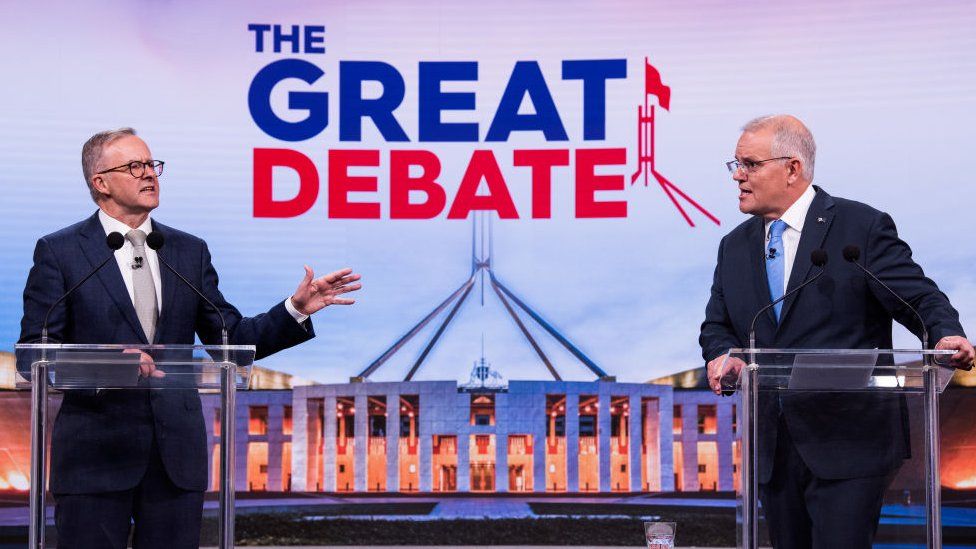Australian election 2022: Millions vote for next leader
Millions of Australians are heading to the polls on Saturday for the country's first election since 2019.

MAY 21: It sees Prime Minister Scott Morrison go up against one of the country's longest serving politicians, Labor Leader Anthony Albanese.
The rising cost of living and climate change have shaped up as two key issues for voters.
But the election has largely been framed as a referendum on the leaders' characters.
Opinion polls suggest Labor will win by a narrow majority this time around. However, the polls were wildly inaccurate in the last election.
Mr Morrison, who leads the Liberal-National Coalition, is the first leader to serve a full term in office since John Howard, who won four elections before losing to Labor's Kevin Rudd in 2007.
He has led Australia through a period dominated by natural disasters and the pandemic - which was initially hailed as a success but was later criticised for inadequate planning.
Mr Morrison has also faced various criticism - from members of his own party to the French President.
He has acknowledged he's unpopular, admitting he can be a "bulldozer" and could have been a "more sensitive" leader.
But Mr Morrison has also defended his approach as what was needed during the pandemic.
Mr Albanese says the conservative government - which has been in power under three different leaders for almost a decade - has had enough time.
"This government has been there for almost a decade, this prime minister had four years in office, and what he's saying is, 'if you vote for Scott Morrison, I'll change'.
"Well, if you want change, change the government."
He's promised voters "safe change" as he battles the perception he is not experienced enough to lead the country as it recovers from a tough couple of years.
Both parties are also facing challenges from high profile independents in several key seats.
Australian election: The basics
Polls opened at 08:00 local time in eastern Australia on Saturday (23:00 on Friday GMT).
Voting is compulsory in Australia, and about 17 million people are expected to cast a ballot this time round.
They'll elect MPs for all the seats in the House of Representatives, and just over half the seats in the Senate.
The main political contenders are the ruling Liberal-National coalition and Labor. Either party will need to win at least 76 of the 151 seats in the House of Representatives - where the prime minister sits - to form a majority government.
If they cannot do that, they must try to win support from independent MPs, or those from minor parties.









Leave Comment